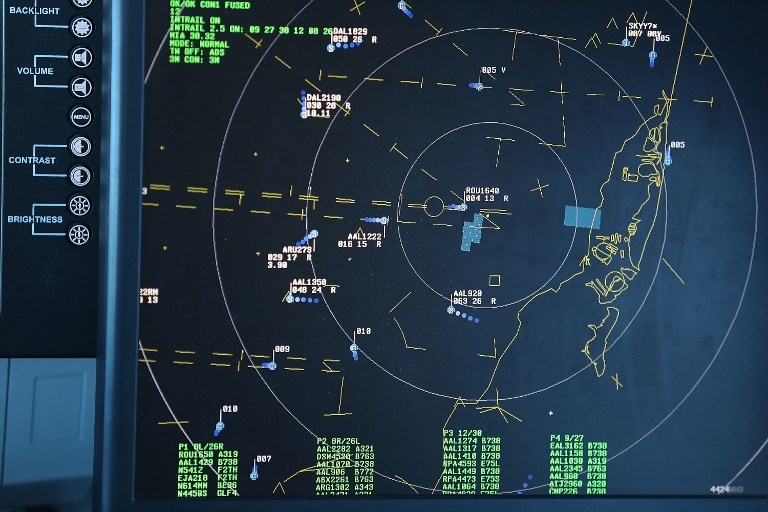EU air traffic control warns airlines of possible strikes into Syria

The European air-traffic control agency, Eurocontrol, warned airlines on Tuesday to exercise caution in the eastern Mediterranean due to the possible launch of air strikes into Syria in the next 72 hours.
Eurocontrol said that air-to-ground and cruise missiles could be used within that period and that there was a possibility of intermittent disruption of radio navigation equipment.
US President Donald Trump and Western allies are discussing possible military action to punish Syria's President Bashar Assad for a suspected poison gas attack on Saturday on a rebel-held town that had long held out against government forces.
On Tuesday Trump cancelled a planned trip to Latin America later this week to focus instead on responding to the Syria incident, the White House said.
'As a proactive precaution, Lufthansa Group airlines have already avoided the airspace in the eastern Mediterranean for some time now'
- Lufthansa spokesperson
He also warned of a quick and forceful response once responsibility for the Syria attack had been established.
The Eurocontrol warning on its website did not specify the origin of any potential missile threat.
"Due to the possible launch of air strikes into Syria with air-to-ground and/or cruise missiles within the next 72 hours, and the possibility of intermittent disruption of radio navigation equipment, due consideration needs to be taken when planning flight operations in the Eastern Mediterranean/Nicosia FIR area," it said, referring to the designated airspace.
Risk to civilian flights
Aviation regulators in countries including the United States, Britain, France and Germany have previously issued warnings against airlines entering Syrian airspace leading most carriers to avoid the area.
The only commercial flights above Syria as of 0115 GMT on Wednesday were being flown by Syrian Air and Lebanon's Middle East Airlines, according to flight tracking website FlightRadar24. At other periods later in the day, no flights were using the airspace. Eurocontrol included a broader area outside the airspace controlled by Damascus in its statement.
A spokesman for Germany's Lufthansa said on Wednesday its airlines were aware of the Eurocontrol warning and were in close contact with authorities.
"As a proactive precaution, Lufthansa Group airlines have already avoided the airspace in the eastern Mediterranean for some time now," he said.
Several other major airlines that fly in the area did not respond immediately to a request for comment about their flight path plans.
The same map did not designate any specific territory as being the "Eastern Mediterranean" region.
There has been heightened awareness by regulators and airlines of the risks that conflict zones pose to commercial jets since Malaysia Airlines flight MH17 was downed by a surface-to-air missile over Ukraine in July 2014, killing all 298 people on board.
Last year, North Korea tested missiles without warning, leading some airlines to re-route flights to avoid portions of the Sea of Japan.
Eurocontrol's warning cited a document from the European Aviation Safety Agency, Europe's safety regulator, a copy of which was not immediately available.
New MEE newsletter: Jerusalem Dispatch
Sign up to get the latest insights and analysis on Israel-Palestine, alongside Turkey Unpacked and other MEE newsletters
Middle East Eye delivers independent and unrivalled coverage and analysis of the Middle East, North Africa and beyond. To learn more about republishing this content and the associated fees, please fill out this form. More about MEE can be found here.





